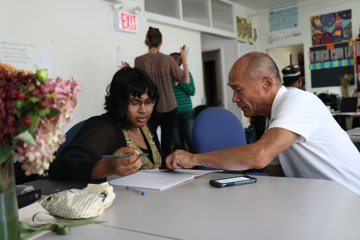
It’s time for a restart on the nature of work.
Even before the pandemic, the idea of work had been changing. Technological advances had set the stage for greater flexibility around where and how we work and how people get paid. The pandemic put all of those ideas on steroids. The result: We’re seeing three years of change happening in just nine months.
Those physical changes, such as people having the flexibility to work from home or getting paid every day instead of every week, need to keep up with changing attitudes about work. It’s no longer enough for work to just be about a paycheck. Now more than ever, people want work to be a way to connect them to other people and their shared vision for building a better world — and people need work to be a place where they are safe where their physical and mental health is paramount.

This month, the Mastercard Newsroom will explore how we’re reinventing economic models and innovating new technology to ensure the future isn’t something that happens to workers and companies. It needs to be something they’ve contributed to, have a vested stake in and are properly positioned to benefit from — both within Mastercard and the workforce as a whole.
We’ll also ask the question: Can we evolve the infrastructure of pay, benefits and services to meet the needs of the rising tide of gig workers — and what implications might that have for the rest of the workforce? How should companies nurture diversity of thought and empathetic leadership among their employees, and what impact can that have on innovation, inclusion and the nature of the solutions they offer? What kinds of technology can Mastercard deliver and partnerships can we forge that will allow a new generation of entrepreneurs across the world to grow and thrive?
This pandemic won’t last forever. Eventually knowledge, advanced treatments and a vaccine will make this moment a dark chapter in the history books. But the changes around work could be with us forever, and that’s a good thing. This is a moment full of challenges but also ripe for innovations and change on a grand scale that can usher in a more human-centric economy and a healthier, happier and more resilient workforce.
related content






























